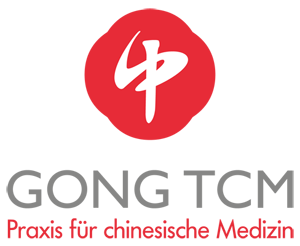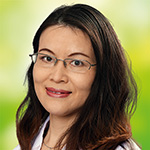About TCM
Zang Fu
The Zang-Fu organs are the functional units of Traditional Chinese Medicine. They form the core of the concept of how the body functions. TCM sees the organs as “functional circuits” in contrast to the conventional medicine view which is purely anatomical. These functional circuits integrate body functions, tissues, sense organs, environmental influences, emotions and mental activities. Close observation of the body surface, tongue, secretions and pulse allows one to draw conclusions about the state of the internal organs and their relationship to each other.
The Zang-Fu organ concept was developed based on the Wu Xing (Five Elements) philosophy. This classification system relates each organ to one of the five elements. Each Zang-Fu organ shares properties with the element it has been assigned to. Examples of such properties include color, taste, emotions etc. They interact cyclically with one another in the same way as the five elements.
The Zang and Fu organs carry the same names as in conventional western medicine (lungs, liver, etc.). Nevertheless the roles they play in pathology and physiology are quite different to those in conventional medicine.
The function of each Zang-fu organ is possibly related to the function of several organs of western medicine. Conversely, functions that are carried out by a certain organ in western medicine are often carried out by several Zang-Fu organs in Traditional Chinese Medicine. These differences exist because the Zang-Fu organs in Chinese medicine are not only anatomical, but also form a part of the concept of physiology and pathology.
| Zang 脏 | Fu 腑 | |
| Speicherorgane | Hohlorgane | |
| Yin | Yang | |
| Wood | Liver | Gallbladder |
| Fire | Heart | Small intestine |
| Earth | Spleen | Stomach |
| Metal | Lungs | Large intestine |
| Water | Kidneys | Bladder |
The main characteristic of Zang organs is their ability to store, buildup and transform the so-called ‘pure substances’: Qi, blood and body fluids, which circulate throughout the body and nourish it. Each Zang organ has an opening which helps assist it in it’s’ function. Blurry vision, for example, is mostly attributed to problems with the liver¬zang, because the liver “opens” into the eyes.
The Functions of the Zang Organs:
heart
Regulates the blood, the vessels and meridians
Opens into the tongue
Is reflected in the complexion
“Houses” the soul (Shen)
Spleen
Regulates transport and absorption
Is the mutual source of production and transformation of Qi and Xue (blood)
Opens in the lips (mouth)
Regulates the muscles and the limbs
Liver
Ensures the smooth flow of Qi
Stores blood
Opens in the eyes
Regulates the tendons
Is reflected in the nails
Lungs
Control Qi and respiration
Nourish the body and facial hair
Regulate the water passages
Open in the nose
“House” the Corporeal Soul (Po)
Kidneys
Store Essence (Jing) and are responsible for human reproduction, growth and development
Dominate the water-metabolism and the absorption of Qi from the air
Assist in the production of bone marrow to fill the brain
Assist in the production of blood
Manifest in the hair
Open in the ear
Regulates the front and rear openings (controls the two lower Yin: the anus and the urethra)
“House” the Willpower (Zhi)
Regulate the emission of urine, semen and vaginal secretions
The hollow Fu organs ensure the absorption, separation, distribution and excretion of body fluids.
Description of the Fu Organs
Gallbladder
Stores and excretes bile (if the liver functions well, bile can be produced and excreted normally)
It is linked to our ability to make decisions
Stomach
The stomach receives and decomposes food
The production of Qi, blood and body fluids (and thus the physiological activity of the human body) is dependent on nutrition. The stomach requires assistance from the spleen, which converts the food into refined materials and transports the nutrients in the body.
Digestive problems manifest themselves initially with stomach pain and loss of appetite
Small Intestine
The small intestine further digests food received from the stomach. It absorbs refined food essence and transports waste products to the colon. In addition, it also absorbs water and ensures that ‘dirty’ water passes into the bladder where it becomes urine.
Pathological changes in the small intestine lead to disturbances in digestion, abdominal pain and bloating, and also have an effect on the excretion of urine and stool.
Large Intestine
The large intestine receives waste material from the small intestine. It absorbs the liquid content and converts the rest to feces, which is eventually excreted.
Disease of the large intestine can manifest with either diarrhea or constipation.
Chinese medicine believes that diseases of the lungs affect the bowel movement. Regulation of the bowels, therefore, is often used to treat lung diseases.
Bladder
The bladder stores and discharges urine (this is accomplished through the functioning of the kidney-qi)
Disturbances in the bladder are indicated by the frequency and urgency of the urge to urinate, dysuria, difficulty in urination, anuria, enuresis and urinary continence.


